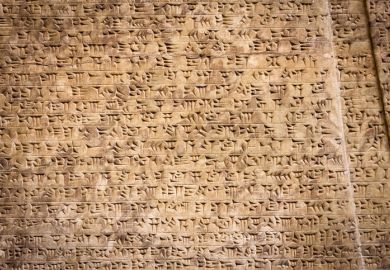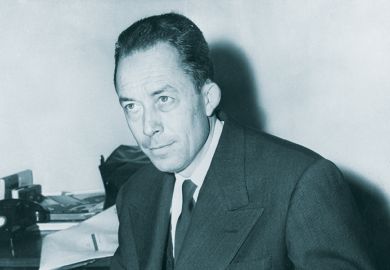Christopher Marlowe lies in the churchyard of St Nicholas, Deptford, in the plague pit where atheists, spies and homosexuals were laid. The inquest was held two days after death, and his killer was pardoned within a month. A meteor life ended in sudden extinction, with mighty forces involved in the lead-up and the aftermath to the Deptford killing.
Park Honan, in this superb biography, goes as far as anyone can in sifting the matter. He does this through a total immersion in Marlowe's life - its contexts, its texts and the discoverable facts about him. These are many. We know far more about Marlowe than Shakespeare. Honan follows the trail from Canterbury to Cambridge, to Marlowe's undercover operations for the Government in France and the Low Countries, and to that fatal assignation in Mistress Bull's house.
Ingram Frizer had motive, means and opportunity; Marlowe's patron, Thomas Walsingham, cannot have been happy at his protege being hauled before the Privy Council; Frizer must have seen his own prospects threatened. By the time the authorities arrived, the three present at Marlowe's death - Frizer, Nicholas Skeres and Robert Poley - had time to get their story together. The coroner's inquest is what we have.
The authorities had made good use of Marlowe. When Cambridge tried to withhold his MA, the Privy Council told them: lay off this man. But Marlowe had gone too far, and in 1593 "atheism" was edging into sedition.
Independence of mind is the key to the poet, according to Honan, who writes: "He (Marlowe) has put himself into a seeker's mind, or pursued an intellectual voyage such as Faustus might have taken."
Independence of mind is the key to Marlowe. In The Jew of Malta , he satirises the Christian community, with Machiavelli sponsoring the Governor. " Tamburlaine is more complex than he seems." In The Massacre of Paris , "once a minority group is demonised, the persecutor has a sanction for massive crimes". In Edward II , "he legitimises homoerotic desire by treating it more realistically than any English playwright had done before".
An acrid, mordant humour is never far away. Wittenberg is close to Cambridge when the two scholars decide to sneak on Faustus: "But come, let us go and inform the Rector" - who does nothing beyond allowing the situation to ripen.
Marlowe's relationship with Shakespeare is the measure of his art. Honan sees "a nearly collusive relationship" in which, always watching each other, "'they switched roles back and forth". Marlowe, born two months earlier, was the "elder" dramatist, with huge early success. (The first edition of Tamburlaine was read to pieces; the second survives in only one copy.) Shakespeare, who gave little publicity to his colleagues, allowed Marlowe into his texts.
But it is true of all Marlowe's work that "it cannot be judged with principles derived from Shakespeare's plays". And the main movement of his art was away from heroism and romanticism.
This is a deeply informed study, whose strength lies in a subtle, intuitive teasing-out of relationships and motives. In the nature of things, this cannot be the last word on Marlowe. New information is sure to come from the Continent, from Cambridge, from the stage, from the linked lesser names. But any new biography of Marlowe will have to start from here.
Ralph Berry's most recent book is Tragic Instance: The Sequence of Shakespeare's Tragedies .
Christopher Marlowe: Poet and Spy
Author - Park Honan
Publisher - Oxford University Press
Pages - 448
Price - £25.00
ISBN - 0 19 818695 9
Register to continue
Why register?
- Registration is free and only takes a moment
- Once registered, you can read 3 articles a month
- Sign up for our newsletter
Subscribe
Or subscribe for unlimited access to:
- Unlimited access to news, views, insights & reviews
- Digital editions
- Digital access to THE’s university and college rankings analysis
Already registered or a current subscriber? Login



